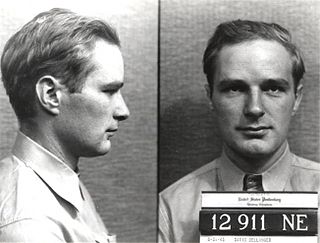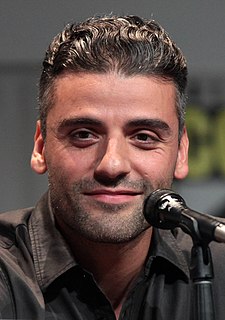A Quote by Kenzaburo Oe
The Japanese chose the principle of eternal peace as the basis of morality for our rebirth after the War.
Related Quotes
Perhaps peace is not, after all, something you work for, or 'fight for.' It is indeed 'fighting for peace' that starts all the wars. What, after all, are the pretexts of all these Cold War crises, but 'fighting for peace?' Peace is something you have or do not have. If you are yourself at peace, then there is at least some peace in the world. Then share your peace with everyone, and everyone will be at peace.
There are, besides, eternal truths, such as Freedom, , etc., that are common to all states of society. But Communism abolishes eternal truths, it abolishes all religion, and all morality, instead of constituting them on a new basis; it therefore acts in contradiction to all past historical experience.
I was born just after the end of World War II, and with my friends in our little suburban backyards in New Jersey, we used to play war a lot. I don't know if boys still play war, they probably do, but we were thrusting ourselves into recent history and we were always fighting either the Nazis or the Japanese.
I don't reject the concept of preemptive war. I'm a mother of five. I have five grandchildren. And I always say: Think of a lioness. Think of a mother bear. You come anywhere near our cubs, you're dead. And so, in terms of any threat to our country, people have to know we'll be there to preemptively strike. But what the president [Bush] did was, on the basis of no real intelligence for an imminent threat to our country, chose to go into a war for reasons that are still unknown to us.
The preservation of peace and the guaranteeing of man's basic freedoms and rights require courage and eternal vigilance: courage to speak and act - and if necessary, to suffer and die - for truth and justice; eternal vigilance, that the least transgression of international morality shall not go undetected and unremedied.
The twentieth century had dispensed with the formal declaration of war and introduced the fifth column, sabotage, cold war, and war by proxy, but that was only the begining. Summit meetings for disarmament pursued mutual understanding and a balance of power but were also held to learn the strengths and weaknesses of the enemy. The world of the war-or-peace alternative became a world in which war was peace and peace war.
In Buddhism, we say reincarnation is the conscious taking of rebirth by a Bodhisattva, or by a high being, whereas rebirth, is what most people do. Rebirth is an involuntary process where they seek traction by finding a new body after their subtle mind loses the old one. There are two things commonly said about this. One- there is no evidence for it and two- if there is evidence, what's the mechanism which carries the consciousness from one life to another.
I'm not saying that atheists can't act morally or have moral knowledge. But when I ascribe virtue to an atheist, it's as a theist who sees the atheist as conforming to objective moral values. The atheist, by contrast, has no such basis for morality. And yet all moral judgments require a basis for morality, some standard of right and wrong.





































